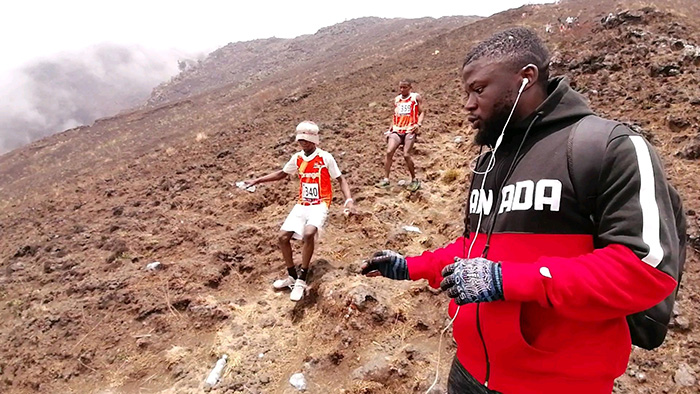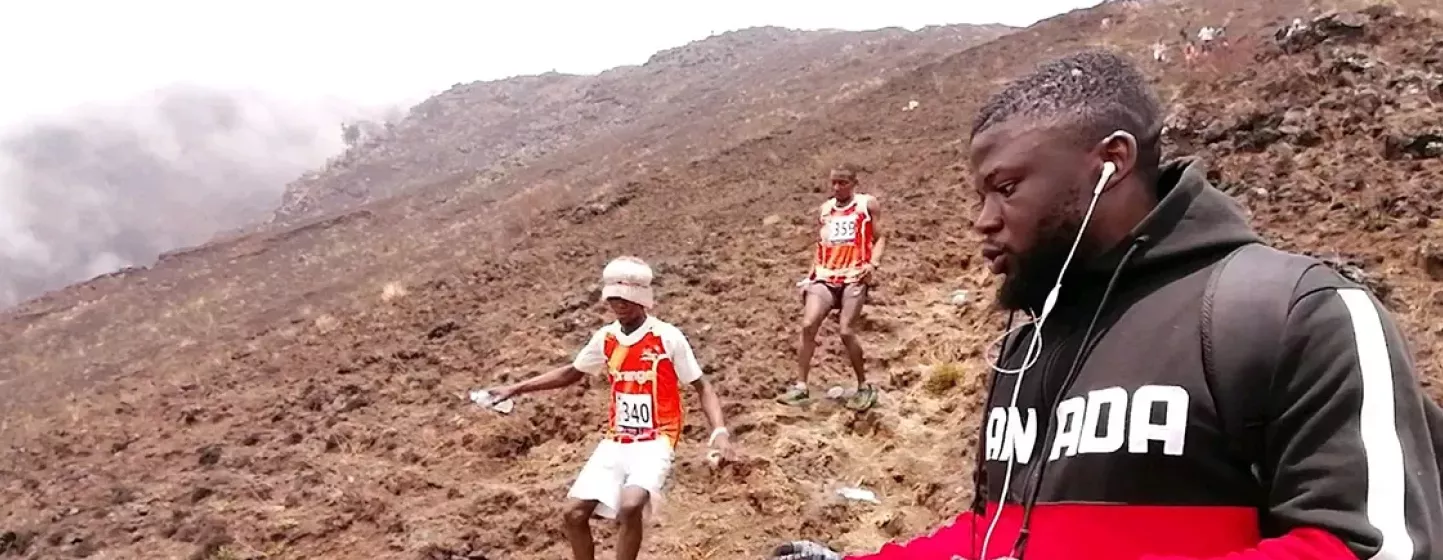Boris-Karloff Batata: "I represent the voices of communities"
Boris-Karloff Batata became Head of Station at CBS Radio (Christian Broadcasting Service) in Buéa (South-West region of Cameroon) in July 2023 and has received several awards. The most recent: a prize for his contribution to community development from the NGO Walcutz Community Development Initiative. For more than five years, he has been working with the same in-the-field passion for often neglected local communities.
Interview by Emmanuel de Solère Stintzy.
As a journalist, why did you choose to specialise in peace and human rights?
I developed my love for this job while I was at school thanks to a journalism club that gave me the opportunity to write reports for the other students. At the time, some people even stopped me in the street! I was known thanks to the stories I told three times a week (editor's note: he even received an award from the Association des étudiants en journalisme [journalism students' association] in 2016).
My journalism is inspired by the pidgin environment that I grew up in. That language, which is very widely used in my region, helped me communicate and gain a deeper understanding of people's mentalities. In general, people are happy to talk to me, and then hear their voices on the radio. My inspiration still comes from the life of the community around me, its poverty, and its challenges in terms of development and education.
What did you gain from the CFI Talk Peace project?
For me, these training and coaching sessions were like a master class after university and five years working as a journalist. I received useful advice on how to have a greater impact in communities by using interactive programmes, profiles or full reports under two minutes, with ambient sounds and excerpts from interviews.
My colleagues value my reports. This makes it easier for me to perform my managerial role and pass on messages. I would also like to introduce more interactive programmes, with intensive training courses for young journalists. Some of the things I learned at university are now obsolete.
In your opinion, what are the challenges that need to be overcome in terms of citizenship for African journalists?
At my media outlet, I advise my colleagues firstly to be patient in approaching communities, as some are isolated and do not know who to trust. You also need to have local contacts and to check safety conditions before heading out into the field. Lastly, when citizens tell us their stories, as professionals in the field of news, we need to verify the information and consider the consequences before publishing. In summary, I encourage my team to choose an angle that is likely to help those communities.
As they feel abandoned, they welcome us and our input as journalists. This encourages me to continue, because I represent their voices. Journalists and communities, we help each other because we are facing the same challenges in society and in our editorial offices: poverty, corruption, lack of governance.

